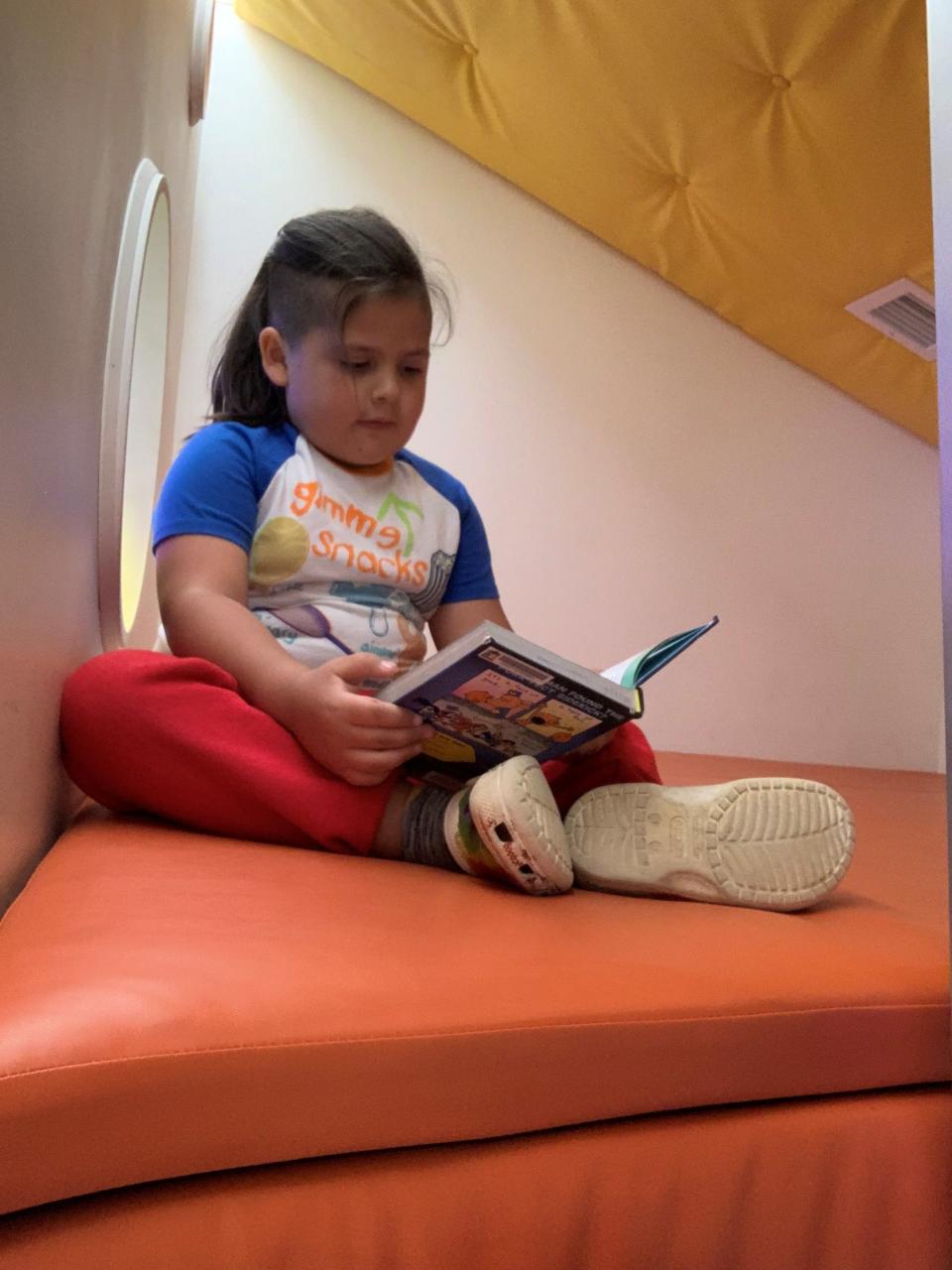When children don't learn to read it destroys their adult lives: Opinion
A while back, I found myself asking, “It just can’t be this bad; only 3 in 10 Americans can read well?!”
I had entered the literacy world. As a retired GE executive, I was dabbling in volunteer tutoring. I tried to help a sixth-grader. I learned that she couldn’t read two-letter words. My first question was, “why is she in sixth grade?” Followed by, “how did the school system let her drop through the cracks?” Of course, the nation’s school systems’ number one priority is to keep students safe while on school property. But isn’t the obvious second priority to teach kids to read?
My next lesson was that this sixth-grader had a familiar story. Her situation was not a rarity. National Reading Scores show that seven out of ten students range between “below grade level” and “functionally illiterate.” This is where it has hovered for 50 years, with only minor improvements. And before COVID hit, there was a frightening drop in 2019 scores versus 2017 scores. And a new long-term study states: “Two decades of growth for American students in reading and math were wiped away by just two years of pandemic-disrupted learning.”
I’ve read voraciously about “reading science.” The most jarring statement for me was from Mark Seidenberg’s 2017 book, Language At The Speed Of Sight: “Parents who deliver their children on that momentous first day of Kindergarten, proudly starting them on the venerable path to education, make a big mistake: they assume that their child’s teacher has been taught how to teach reading. They haven’t.”
Marc Tucker’s article said: “We now have the worst-educated workforce in the industrialized world.”
The research goes on and on to validate this inexcusable travesty.
More:Ensuring Kentucky schools continue to improve means keeping public tax dollars public
Why care about this?
Illiteracy is entangled as the partial cause of most U.S. societal ills. These issues range from: social / racial injustice – to physical / mental health – to massive wealth disparity – to national security – to criminal justice – to lack of global competitiveness.
But it gets worse. Studies have shown that the “experience” of “failing to learn to read” creates a debilitating internal shame response for children. They think they’re not intelligent; they “check out,” unable to trust their ability to learn. This generates socially pathological behaviors as they grow older. Some experts suggest that failing to learn to read is the number one cause of developing criminal behavior!
Parents, is this what you want for your children?
See for yourself. Watch these interviews, particularly “What’s At Stake” and “Shame: The Dark Heart Of Reading.” Have tissues handy!
I’m the co-founder of www.anyonecanread.com. We’re a suite of online multisensory literacy tools – free to anyone in the world – with the purpose of helping to mitigate reading issues. Learning Stewards, another great Louisville nonprofit, offers groundbreaking assistive reading technology to team with AnyOneCanRead’s curriculum lessons and comprehensive phonics activities.

More:First they lost their playground, then the community showed up
Volunteering makes a difference
I also volunteer as a tutor for the nonprofit Backside Learning Center. Six of the wonderful JCPS elementary school children (from English-language-learner households) who I tutored experienced great pride with their reading this summer. All are fluent in spoken English, but their parents can’t help them much with written English. Thus, if JCPS can’t pull them to reading success, they may never achieve it.
The Backside Learning Center is a Louisville jewel, supporting Churchill Downs’ worker’s families. With eight one-hour one-on-one tutoring sessions over nine weeks, we not only eliminated the “summer reading slide,” but five of the six youngsters progressed toward reading more complex text! It can be done with robust instructional practices!
We modeled our summer program on a concept called “high-dosage tutoring.” It’s about the only thing that’s been identified as a successful catch-up process for reversing COVID learning loss. Tennessee is the star for using this, devoting $200 million toward making it happen.JCPS has vexing challenges, given their negative 2019 performance with fourth-grade reading scores, the worst performance in the nation.
Correcting this negative trajectory requires imagination, innovation and courage. We hope that JCPS will be up to the challenge and will find new approaches to generate better results. Our city’s children – our future – deserve nothing less. Perhaps JCPS would like to dialog with us, at zero cost to them?
Kenny Pritchett is the President and co-founder of AnyOneCanRead. He can be reached at literacy987@gmail.com.
This article originally appeared on Louisville Courier Journal: When children don't learn to read it destroys their adult lives

